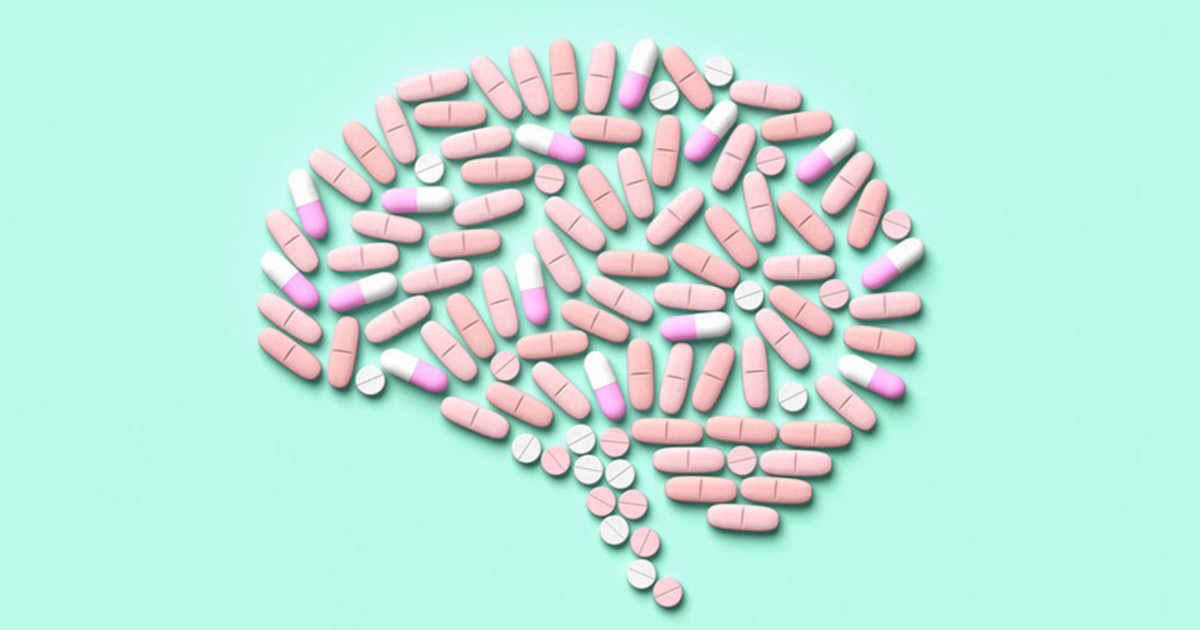Hiroshi Watanabe / Getty
Multivitamins have come underneath lots of scrutiny lately, as quite a few research have failed to verify that they defend in opposition to most cancers, coronary heart illness, diabetes, or different widespread illnesses. Certainly, the medical group is break up on whether or not we must always trouble taking them in any respect. Some physicians say that wholesome adults who observe a comparatively well-balanced food plan don’t want dietary supplements. Others proceed to suggest them within the perception that bigger, extra rigorous trials should reveal that multivitamins present vital well being advantages.
Now a brand new research by scientists at Columbia and Harvard lends credence to the concept that multivitamins have hidden worth, discovering proof that they will gradual the tempo of age-related reminiscence loss. The research, led by Columbia neuropsychologist Adam Brickman, is taken into account consequential as a result of it was a randomized managed trial — the gold commonplace of well being and medical analysis. Greater than 3,500 folks over the age of sixty had been randomly assigned to take both an ordinary multivitamin or a placebo day-after-day for 3 years and got reminiscence checks yearly. Those that took the day by day multivitamin carried out significantly better on the checks on the finish of the primary yr and by the tip of the research had been spared the equal of three years’ value of anticipated age-related reminiscence decline.
“The advantages we noticed would appear delicate to somebody experiencing them, however from a statistical standpoint, the impact was very clear, very highly effective,” says Brickman, whose paper seems within the American Journal of Scientific Vitamin.
Importantly, the Columbia research replicates the findings of one other massive scientific trial on the memory-enhancing potential of multivitamins in older adults, accomplished final yr by scientists at Harvard and Wake Forest. Regardless of utilizing completely different strategies, the 2 research produced remarkably related outcomes, with each discovering that folks with a historical past of heart problems skilled essentially the most pronounced cognitive advantages from taking a multivitamin — a discovery that the researchers say could possibly be an indication that these people had been consuming less-healthy meals or absorbing fewer vitamins and due to this fact had extra dietary gaps to fill. Each research used a preferred multivitamin, Centrum Silver, though the researchers say that any high-quality multivitamin is more likely to produce the identical outcomes. (The research was supported by grants from Mars Edge, a division of the Mars meals firm that focuses on diet merchandise, and the Nationwide Institutes of Well being, with multivitamins provided by Pfizer.)
Additional analysis will probably be wanted to determine the particular vitamins that boosted folks’s reminiscence, however Brickman says that earlier laboratory experiments level to vitamin B, vitamin D, zinc, and magnesium as doubtless candidates. “It could be that there isn’t a single magic bullet however that these vitamins and others are working collectively to keep up mind operate as we age,” he says.
Ought to docs now suggest multivitamins to all their sufferers? Not simply but. “We don’t know but how lengthy the advantages that we noticed will endure or in the event that they’ll have any bearing on whether or not somebody develops dementia, Alzheimer’s illness, or different critical reminiscence issues,” says Brickman, a professor of neuropsychology at Columbia College Vagelos School of Physicians and Surgeons. “These are very important questions.”
However, his crew’s newest discovery is a uncommon piece of encouraging information for tens of millions of people who find themselves already taking multivitamins, together with some 40 p.c of all People over sixty. Till now, multivitamins had solely been proven to assist stop a small variety of medical circumstances, together with cataracts and macular degeneration. Brickman, who’s forty-nine, says that the prospect of staving off reminiscence loss by a couple of years was sufficient to encourage him to begin taking a day by day multivitamin. “I hadn’t taken one since I used to be a child,” he says. “However as quickly as I noticed our knowledge, I began up once more.”
To others contemplating an analogous plan of action, he presents a couple of notes of warning. First, it is very important seek the advice of a doctor earlier than taking any dietary dietary supplements, together with day by day multivitamins, partially to make it possible for they gained’t work together with any medicines you’re taking similar to sure blood thinners, antibiotics, and most cancers medicine. And don’t devour greater than the really helpful day by day quantities of any important vitamins. “A standard mistake that folks make is that they assume that if it’s good to get 100 milligrams of a selected vitamin day by day, it’s even higher to get ten or twenty instances that quantity. However it’s not. It could actually truly be harmful.” Moreover, it’s higher to get your important vitamins from meals quite than from dietary dietary supplements every time potential. “The physique is most adept at processing micronutrients in the identical varieties and combos as they’re present in nature,” he says. “Dietary supplements can present a degree of safety in opposition to sure deficiencies, however they’re no substitutefor a nutritious diet.”
And the mind, it appears, requires an unusually sturdy nutrient provide. “Maybe that is an important lesson to attract from our new analysis: that the mind is much more delicate to diet than we beforehand realized,” says Brickman, who’s an skilled on the neuronal and vascular construction of the organ. “It could want elevated ranges of varied nutritional vitamins because it ages, so as to proceed working correctly.”

